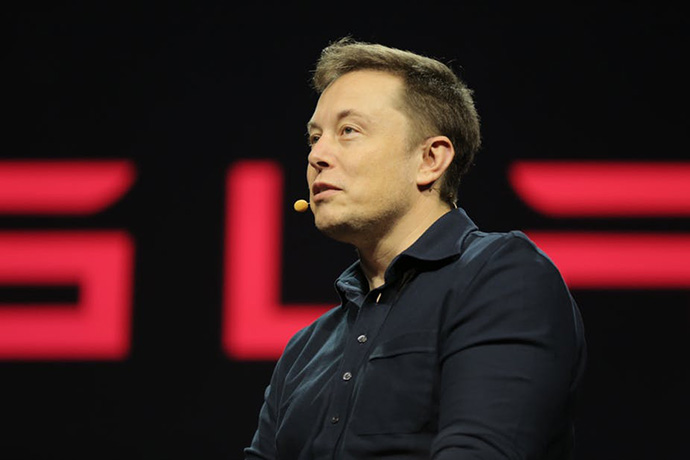Elon Musk Deserves the Nobel Peace Prizeby Matthew Burgess and Ian Burgess |
|
Elon Musk has been in the news a lot recently, for ill-advised tweets, for smoking pot during an interview, and for his reported sleep problems (perhaps the cause of his other problems). But Musk has also arguably done more than any other single person to advance renewable energy, at a time when we urgently need action on climate change. For this, we think he deserves the Nobel Peace Prize. Major moral honors are still rarely given to innovators, especially those in private business. Considering how many improvements to global living standards have been made or proliferated by private innovations (e.g., many pharmaceuticals, vaccines, mass production, industrial farming, the printing press, the light bulb, cars), it is surprising that the Nobel Peace Prize has only gone to a business leader once (in 2006 for developing-world microfinancing). In 2007, Al Gore and the Intergovernmental Panel on Climate Change (IPCC) shared the Nobel Peace Prize for scientifically describing the threat of climate change and for bringing the issue to the forefront of public consciousness. But arguably, that was the easy part. De-carbonizing the global economy, without causing tremendous human suffering and conflict in the process, is the real challenge. Amidst all of the recent disasters that have put climate in the news—Hurricanes Florence, Maria, Harvey, and Irma, fires, and droughts—it would have been easy to miss some major good climate news: Britain, France, India, and several other countries announced last summer that they will ban selling internal-combustion vehicles in the next few decades. More countries will likely follow suit. These announcements signal more than a commitment to climate action. They signal a confidence in the feasibility of mass-market electric cars. Elon Musk is a big reason for this confidence. Not only did he oversee the quantum leap in battery and powertrain technology needed, but he released Tesla’s patented designs for any competitor to copy. Of course, using electric cars won’t reduce emissions unless the power grid is also powered by renewables, rather than by coal and other fossil fuels. But Musk has made important contributions here too with SolarCity (now owned by Tesla), making it easier for homes and businesses to harvest and store solar energy locally. In the past year, SolarCity has invested heavily in boosting Puerto Rico’s solar power capacity, as part of the rebuilding effort following Hurricane Maria. It will take a society-wide effort to solve the climate problem—to shift the entire economy to renewables and mitigate whatever damages are not prevented. Efforts cannot be society-wide if they are partisan, yet polls suggest climate change still is partisan. It becomes more partisan when it is framed as a moral conflict between political tribes, rather than as a monumental technological and societal problem with no easy solutions. Burning fossil fuels is warming our planet, but this low-cost access to energy is also at the core of most of the past century’s gains in poverty reduction and global living standards. Providing billions of people with food, shelter and security takes a lot of energy, and this energy has to come from somewhere. To make the energy system sustainable without descending into severe hardship and conflict in the process will require game-changing innovations in technology and in clean energy economics in a short time—the kinds of innovations Musk is pioneering. The Green Revolution in agriculture provides a good analogy. In the late 1960s, scientists warned of an imminent global food crisis caused by overpopulation. Instead, agronomists—led by Norman Borlaug—made breakthroughs in developing high-yielding crop varieties, and global hunger decreased over the following decades. Borlaug won the Nobel Peace Prize in 1970 for these innovations, which are often credited with saving billions of lives thereafter. Beyond being an appropriate recognition of Musk’s accomplishments in renewable energy technology, giving him the Nobel Peace Prize would also send some sorely needed messages in the modern age of outrage: First, a couple of bad tweets shouldn’t be enough to overshadow a decades-long and brilliant career. This is certainly not a standard that most past recipients of the Peace Prize would have met. Second, we should value people who get things done more than we value people who say the right things in public. There are many ways to make the world a better place, and most do not fit the ‘speak truth to power’ mold. If we want enterprises to do good, we need to encourage do-gooders to be enterprising. The Nobel committee has a golden opportunity to make this case to the world. In 2007, they awarded the Peace Prize to Al Gore and the IPCC for sounding the alarm on climate change. In 2018, they should award the prize to Elon Musk for doing something about it. |
|
 Ian Burgess Ian BurgessCo-Founder and CTO of Validere, recently named one of Canada’s 20 most innovative technology companies by the Canadian Innovation Exchange |



 Matthew Burgess,
Matthew Burgess,